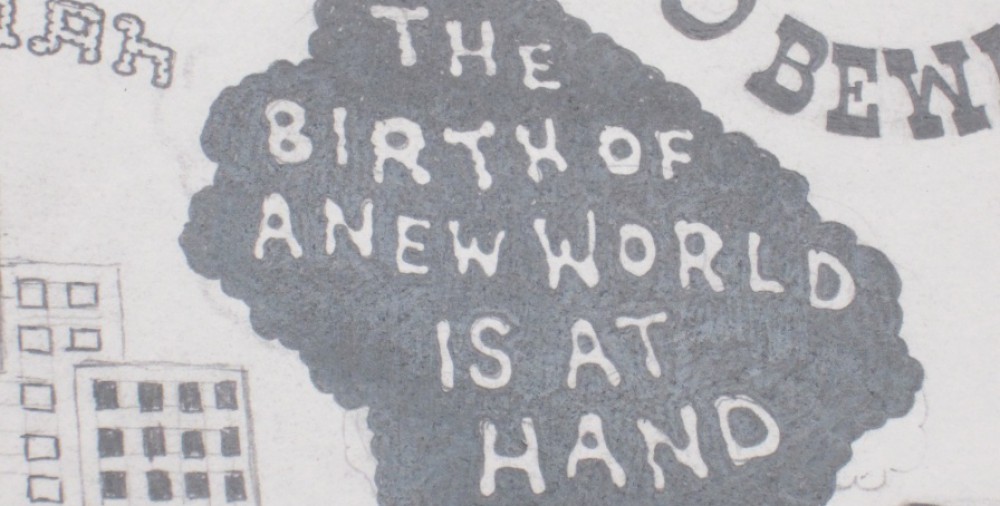After reading The Day Before the Revolution for the first time my mind was all over the place. I had no idea of what to make of this story. It took me awhile to finish this reading because I wasn’t focusing on it. I felt it was way too long and just flat out confusing especially all the different names. While reading I caught myself just looking at the words and not grasping/ paying attention to them and I was not understanding what I was reading. I then read this story over again and got somewhat of a better understanding. I felt the imagery Le Guin used was great. From the details in the story I was able to picture the different peoples appearances ex : “(an old woman with grey hair . . . in a slum, muttering to herself)” Le Guin page 12. I imagined an old lady sitting on a dirty city street. I also imagined a very gloomy setting wherever the old lady went almost like a dark cloud on top of her. I think that the old lady wanted to preserve the area around her in which she was so used to and to keep everything the same as it always was even as she is getting older and older and all she is doing is just reminiscing on the past when she was younger and how everything used to be. I still didn’t fully understand the whole meaning this story is trying to give off but I think it can be interpreted in different ways. I feel that adding other names and places confused me and it was hard to try and change back and forth on who Le Guin was writing about. I think the main focus of this story should have been only about the old lady’s life and not other people because I was at times unsure with who is who. One part of the story I felt was interesting was the quotation “(courage – what was courage? . . . not fearing, some said. Fearing yet going on)” Le Guin page 6. This part really made me think about how there are many different meanings of words and its just based on how you interpret it. I would think that this story is a utopia because of how the old lady lived and wanted everything to be the way it was for example: being with her husband. I think that shows this story is a utopia because that was her perfect world, her husband being alive.
From reading The Ones Who Walk Away from Omelas I can say that Le Guin is good at using adjectives and imagery to enable the reader to imagine or put themselves in that setting. This story also confused me. Le Guin didnt actually give any specific names of people, but just kept repeating “they”, “he”, “the child” . I wanted to try and place a character in the situation because I was able to clearly picture where and how this story was taking place. On the first page Le Guin described the Festival of Summer which led me to believe it was a happy place where everyone of Omelas came together and celebrated. After continuing reading Le Guin writes about the child who is locked in the basement. I didnt like this at all because the child was being referred to as “it” and because that Le Guin really enables the reader to picture how everything looks really made me feel bad for the child and the harsh living conditions. I felt this was weird because to what I thought, the first page was described as a happy place with “a cheerful faint sweetness of the air”. I think that this story was an example of a dystopia because although in the beginning of the story it was described as what I thought was good environment, Le Guin added the element of the child locked in the basement with a rusty bucket and dirty floors. Le Guin writes that perhaps the child was born defective with feelings of fear and neglect. I think that can maybe be a dystopia because in the real world its okay if a person may have some type of defect or disability and they are still equal to any other person. But, in Omelas where I interpreted as a “perfect sounding” world the child added almost a feeling of negativity. (which in my opinion is wrong) The element of the child in this story really made me dislike it.



